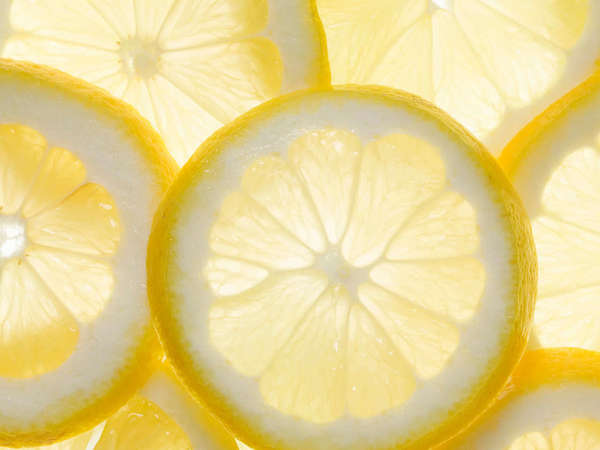Acidity of Tea
Last Updated: Jul. 20, 2017
Quick summary:
- Most tea is mildly acidic.
- Acidic teas taste more sour.
- Tea tends to be less acidic than coffee, and much less than most fruit juices.
Tea is not acidic enough to cause any harm.
Acidity is usually measured by pH, with pure water being given a pH of 7, and acids being given lower pH's, ranging from 1 (stomach acid) to 3-4 (fruit juices), to just under 6 for very mild acids. A recent study found the acidity of black tea to be about 4.9.[1] However, the pH of tea depends on both the individual tea, and the brewing strength. Brewing tea more strongly, including by using more leaf or longer steeping times, results in a more acidic cup. Lemons are a highly acidic fruit. Lemon juice has a pH of around 2, making it one of the most acidic ingredients in food. Crop of Photo by Michael Stern, © Michael Stern, CC BY-SA 2.0
Lemons are a highly acidic fruit. Lemon juice has a pH of around 2, making it one of the most acidic ingredients in food. Crop of Photo by Michael Stern, © Michael Stern, CC BY-SA 2.0By contrast, pure fruit juice was found to have pH between 3 and 4, whereas sodas (regular or diet), sports drinks, and energy drinks were found to have pH's between 2 and 3.[2] This is solidly in the range which can cause tooth decay. Tea, by contrast, is very mild, and is not known to cause any problems with tooth decay or digestive upset in association with its acidity. Tea is also not known to cause any problems with acid reflux or "heartburn".
Tasting acidity, distinguishing it from bitterness and astringency
You can taste the acidity of a drink relatively easily, as our taste buds recognize acidity as sour flavors. Teas, drinks, and foods that taste more sour thus have greater acidity. Although sourness can sometimes be difficult to completely separate from other flavors like bitterness, or other qualities like astringency, taste can be a good coarse indicator of the relative acidity of different foods and drinks.What compounds in tea contribute to acidity?
Tea contains a variety of naturally acidic and basic compounds which interact to form a mildly acidic solution. A 2001 analysis of black tea found that the dominant anions (acidic parts of compounds) in brewed tea were oxalate and citrate. Citrate is associated with citric acid, and is a common organic acid also found (in much higher concentrations) in citrus fruit like orange and lemons. Oxalates are also widespread in leafy vegetables and fruits.pH and acidity of herbal teas
As herbal teas can be made from any plant other than the tea plant, their acidity is thus widely variable, and little can be said in generality about them. Flavor is usually a good coarse indicator of the level of acidity. For example, hibiscus, consumed on its own, and frequently added to herbal blends, has a strong sour flavor, and can make a blend considerably more acidic. One study found the pH of hibiscus tea to be 2.5, much lower (more acidic) than tea, somewhere between orange juice and lemon juice.[3]Some companies, including Celestial Seasonings and Tazo, add citric acid to teas to make them more sour. If you are concerned about the pH of herbal teas or blends, do a taste test, and check the ingredient list for common sour ingredients such as hibiscus or added citric acid.
The "Alkaline diet"
Much of the interest in the topic of the acidity of tea comes from interest in the alkaline diet, a diet based on the idea that certain foods are either acid-forming or alkaline-forming in the body. This diet usually recommends drinking green tea and avoiding black tea, but adding lemon to it if you do drink it. Authority Nutrition published an evidence based review of the alkaline diet and concluded that "The alkaline diet is healthy because it is based on real and unprocessed foods. It has absolutely nothing to do with being acidic or alkaline." We also found no evidence supporting the validity of the recommendations of this diet with respect to teas.References:
1. Tooth erosion: Tooth surface pH during drinking of black tea, British Dental Journal, 190, 374 - 376 (2001).
2. Acidic beverages increase the risk of in vitro tooth erosion, Nutr Res. 2008; 28(5): 299–303. doi: 10.1016/j.nutres.2008.03.001.
3. The Efficacy of Karkadeh Tea in Controlling Post-Prandial Blood Glucose Levels, American Journal of Pharmacology and Toxicology, DOI: 10.3844/ajptsp.2009.151.157, Volume 4, Issue 4, Pages 151-157.

